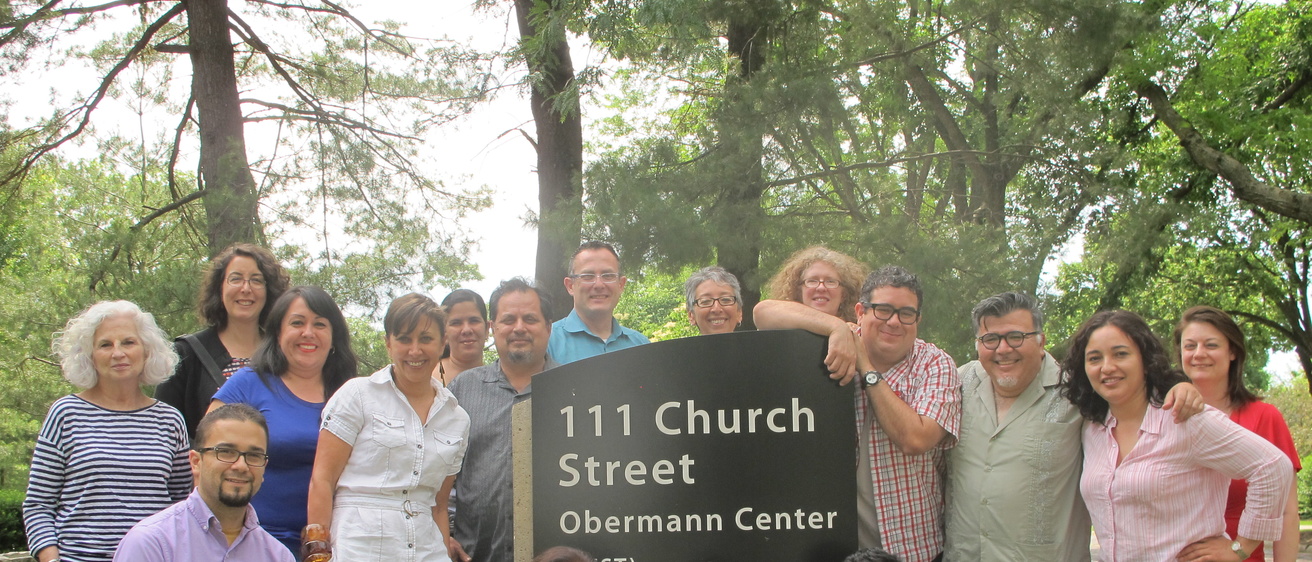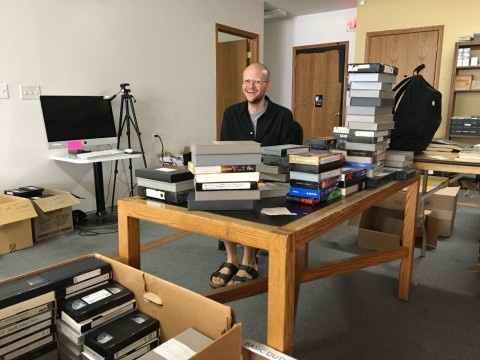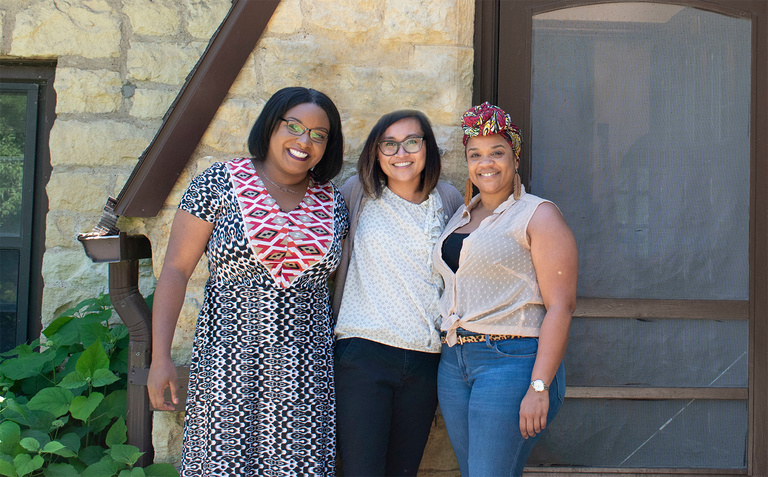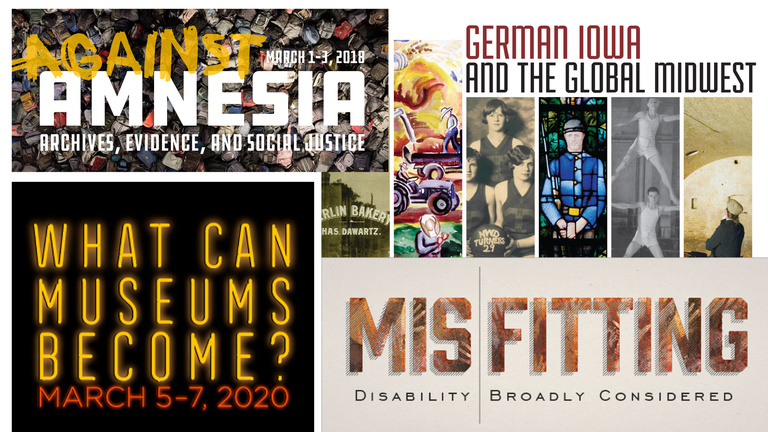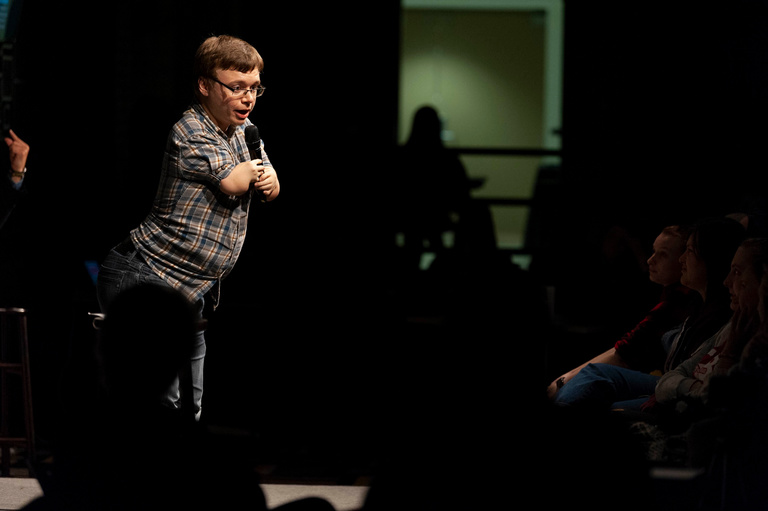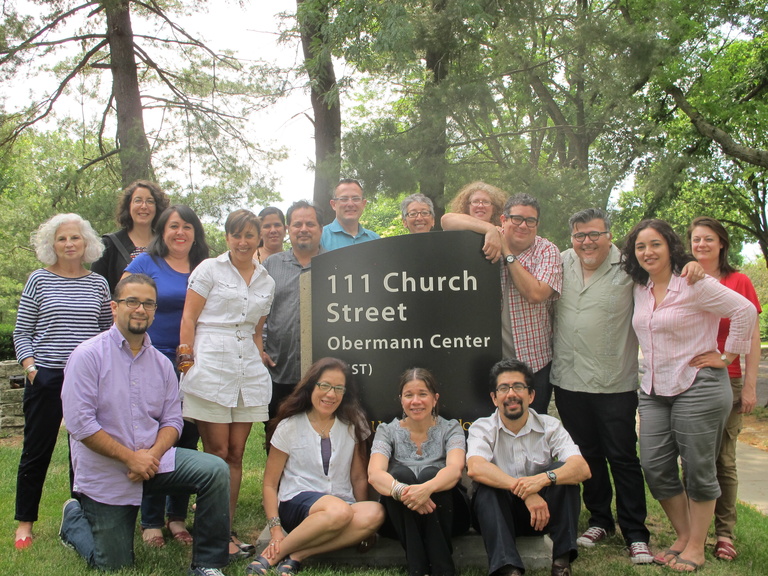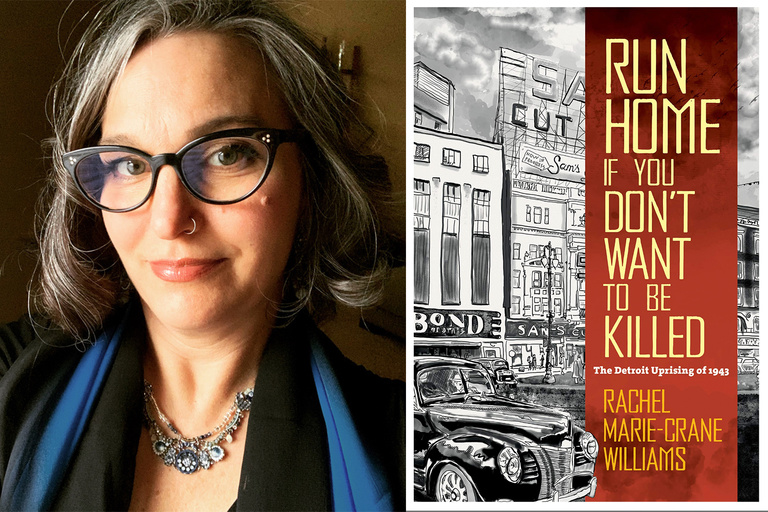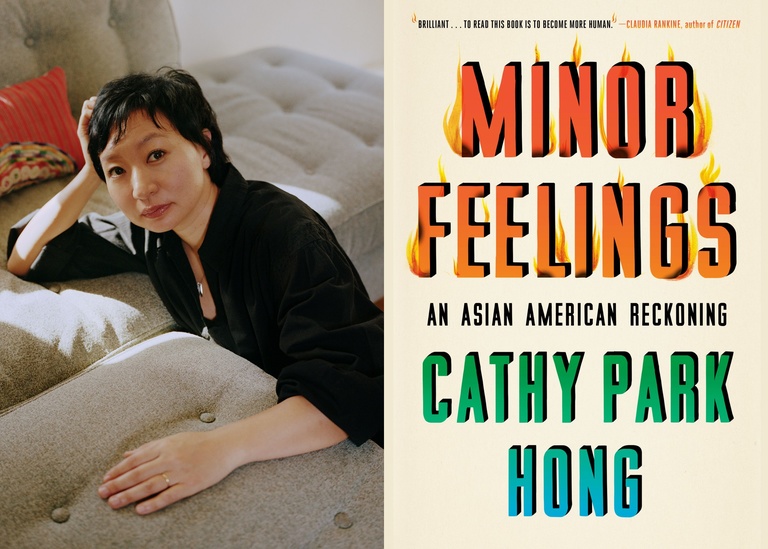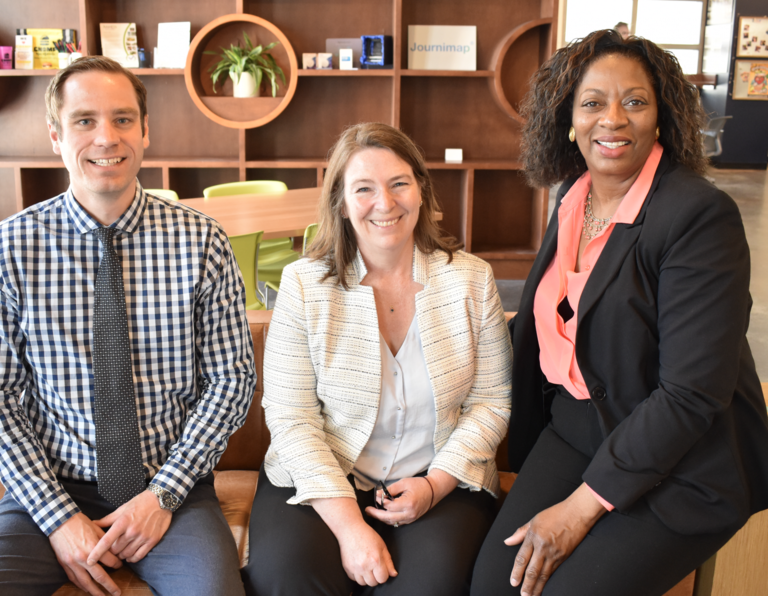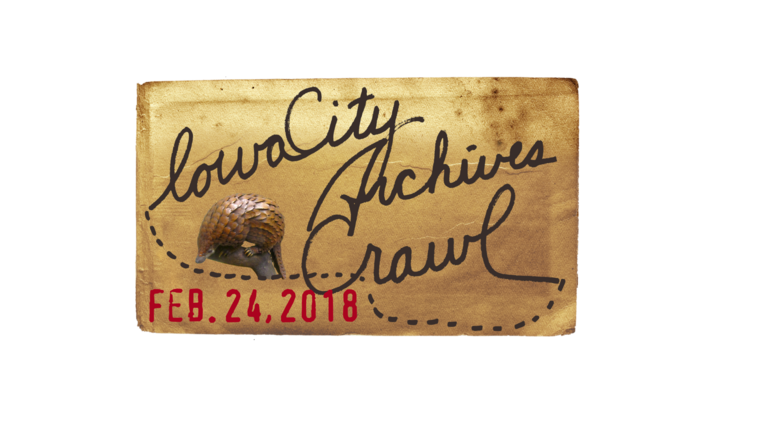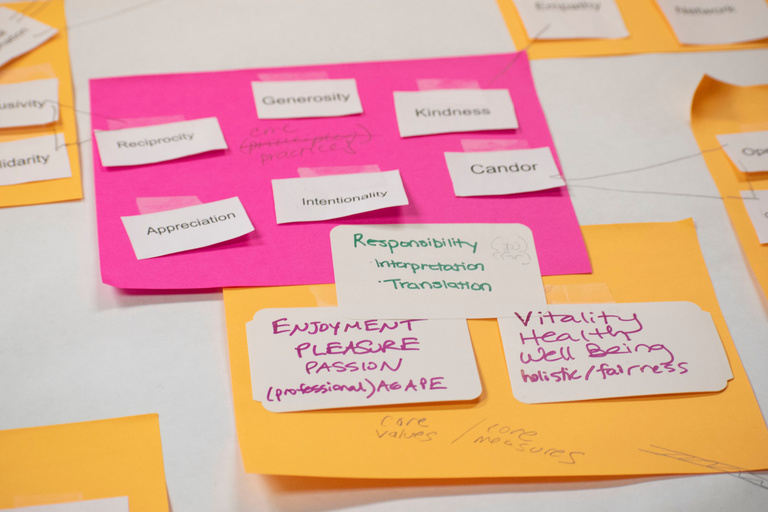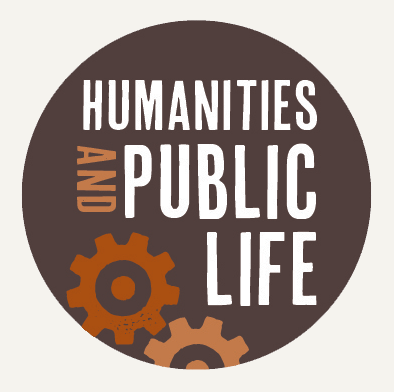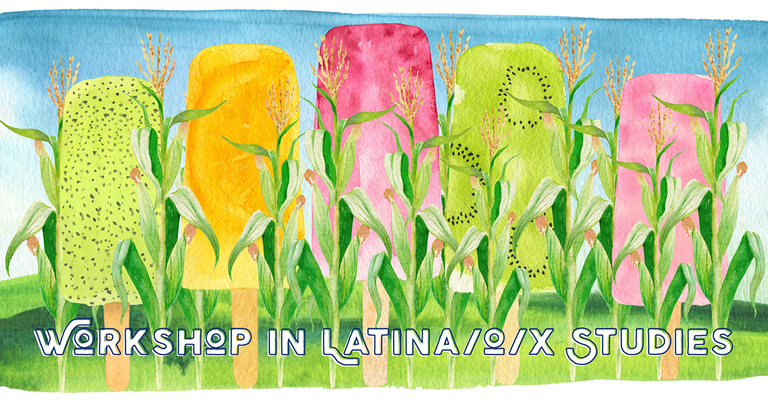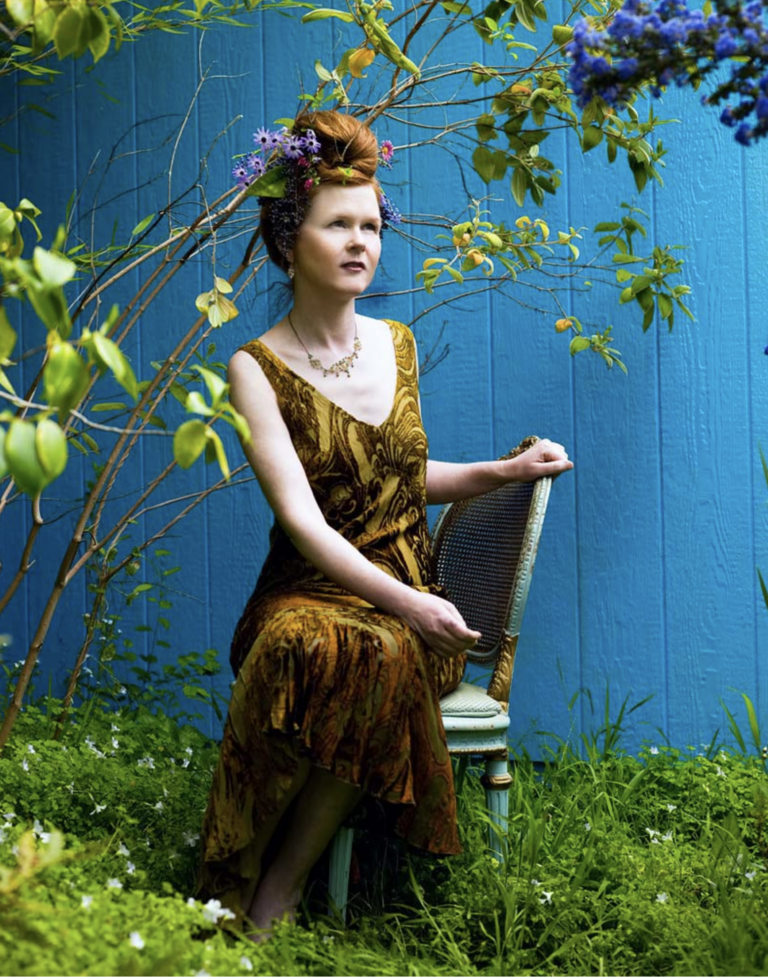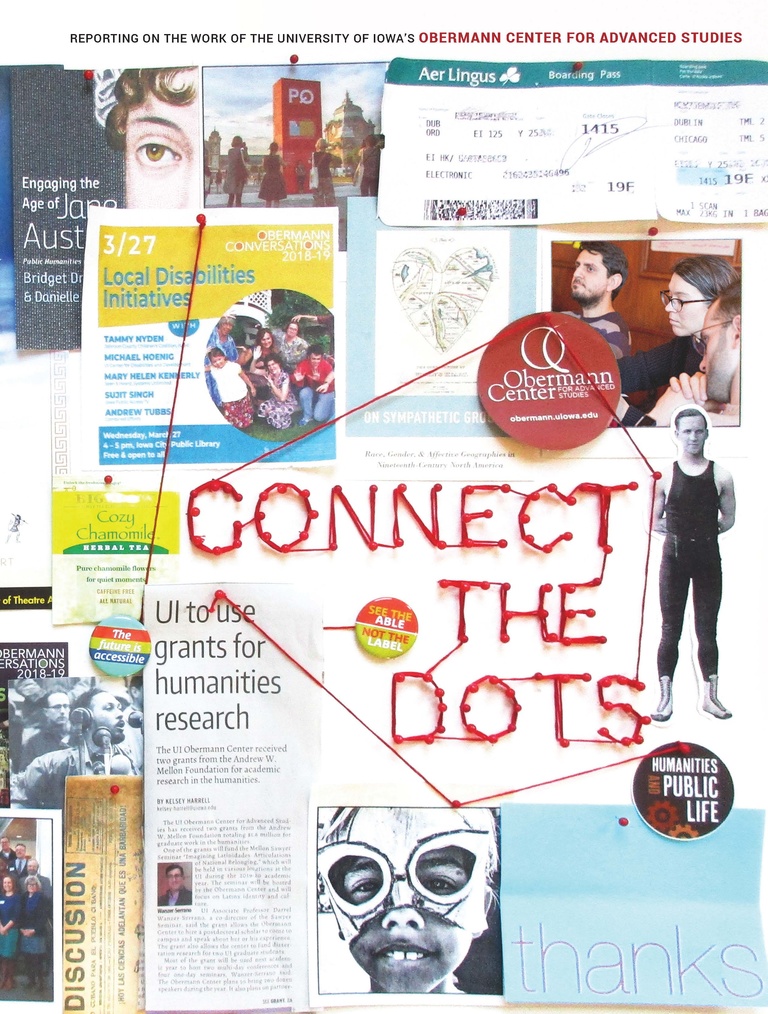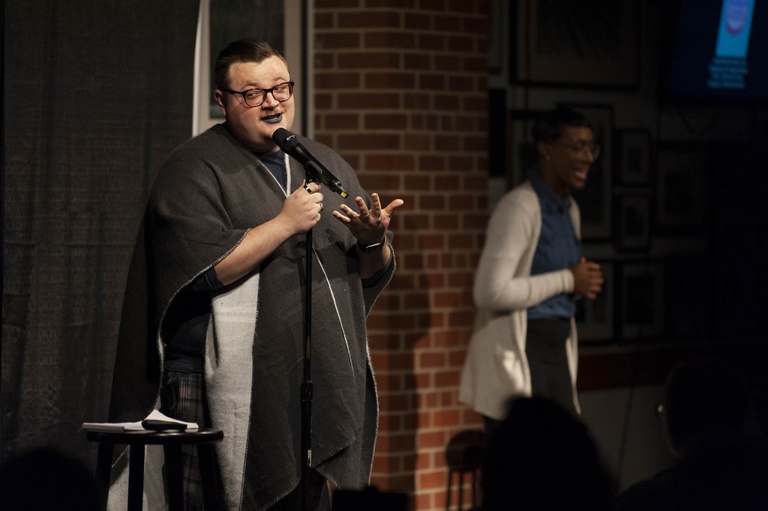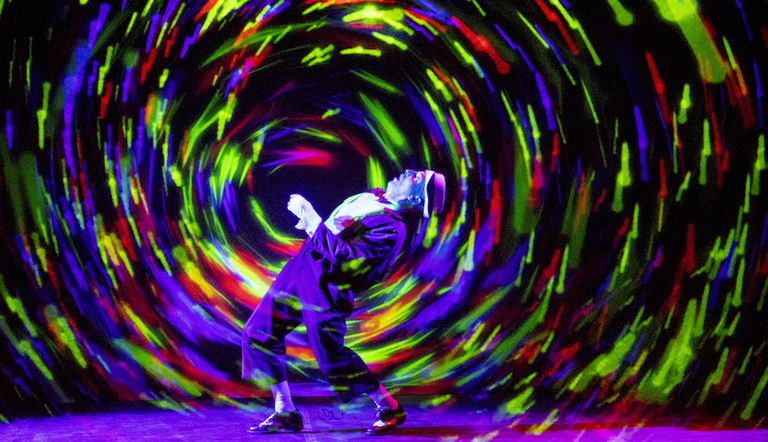Support the Obermann Center
A Crucial Foundation
C. Esco Obermann came to the University of Iowa as an undergraduate from Yarmouth, Iowa, in 1922. Sixty-eight years later, he and his wife Avalon endowed a fledgling center because of their belief in interdisciplinary research. Today, the Obermann Center for Advanced Studies serves the research mission of the University of Iowa by providing funding, space, and the crucial connections that make for innovative breakthroughs and reflective discovery. By recognizing the value of bringing faculty, researchers, and artists from across campus together to meet in a lively but neutral setting, Esco and Avalon Obermann laid a crucial foundation for the scholarly work that has ensued at the Center ever since their gift.

The results have been profound and unique. Nowhere else on campus could a three-day international symposium delving into the humanistic approaches to the Anthropocene and led by faculty in Geoscience, English, and History have been planned.
And the Obermann Center was exactly the right place for a project between a nurse and a musicologist to devise a pain relief app for teens undergoing spinal surgery.
Relationships with Professional Schools
We have worked with faculty members from every college at the University of Iowa. Many of our faculty and students come from the College of Liberal Arts and Sciences and the College of Education (we have worked with hundreds when we combine the two). However, a quick look at our database suggests that in the last decade we have also worked with faculty from Business, Law, Dentistry, Pharmacy, Medicine, Nursing, Public Health, and Engineering.
Ripple Effect
Giving to the Obermann Center has a ripple effect. First and foremost, gifts allow the Center to continue and expand its creative programming that includes community members, graduate students, and which reaches across geographic borders. Funding provides more opportunities for UI scholars to do the work that is so central to the purpose of any university—to deeply consider ideas and problems that might bear on the current condition. And as faculty are enriched, so are their students who reap the benefit of cutting-edge research and new connections.
Some recent programs and projects that have emerged as a result of having been incubated and otherwise supported by the Obermann Center include:
- Humanities for the Public Good, a multi-year project supported by the Andrew W. Mellon Foundation to develop a practice-based, cross-disciplinary PhD program for humanities students interested in diverse careers;
- the founding of the UI Latino Studies program, which came into being following the Obermann Humanities Symposium "The Latino Midwest" and ensured that the UI was no longer the only school in the Big 10 without such a program;
- a new opportunity for UI graduate students—the Spelman-Rockefeller Community Scholar—to work directly with a community partner while expanding and applying their research focus;
- conversations, lectures, and workshops that amplify voices of BIPOC faculty, students, and artists and share projects ranging from the reconceptualization of one institution's past relationship to enslaved individuals to a public presentation of the effects of ICE raids on the health and well-being of Latinx populations in rural communities;
- recent award-winning books, such as Natalie Fixmer-Oraiz's Homeland Maternity: U.S. Security Culture and the New Reproductive Regime; and
- new forms of scholarly production, such as Ana Rodriguez's Madrid-based exhibition, Wise and Valiant: Women and Writing in the Spanish Golden Age.
In the nearly four decades since its inception, the Obermann Center has supported:
1,061
68
600 +
376
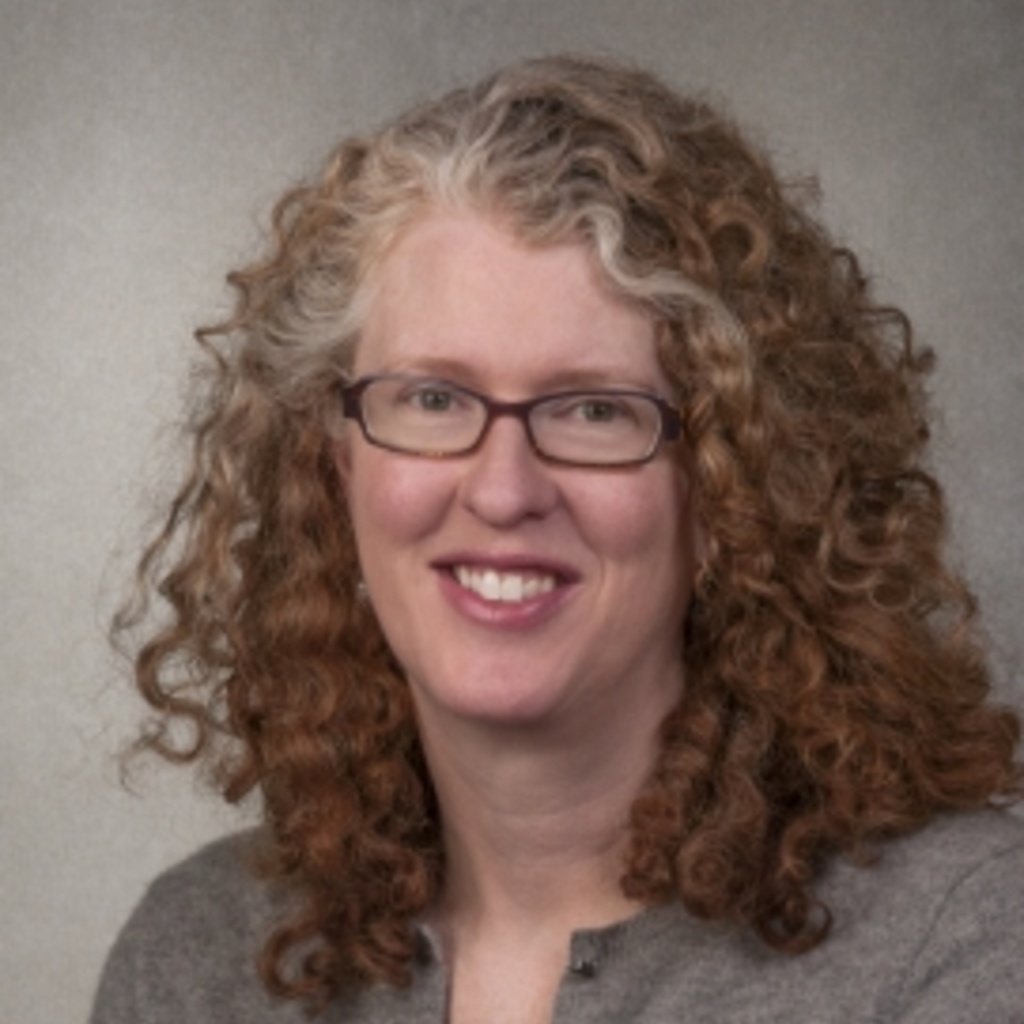
Interdisciplinary connections
"The Obermann Center is excellent at facilitating connections among different disciplines and research units on campus, as well as between the campus and community groups. Those connections lead to all kinds exciting new projects and research, and they foster good faculty governance at UI." Fox co-directed a 2012 Humanities Symposium exploring the culture and history of Latinos in the Midwest.
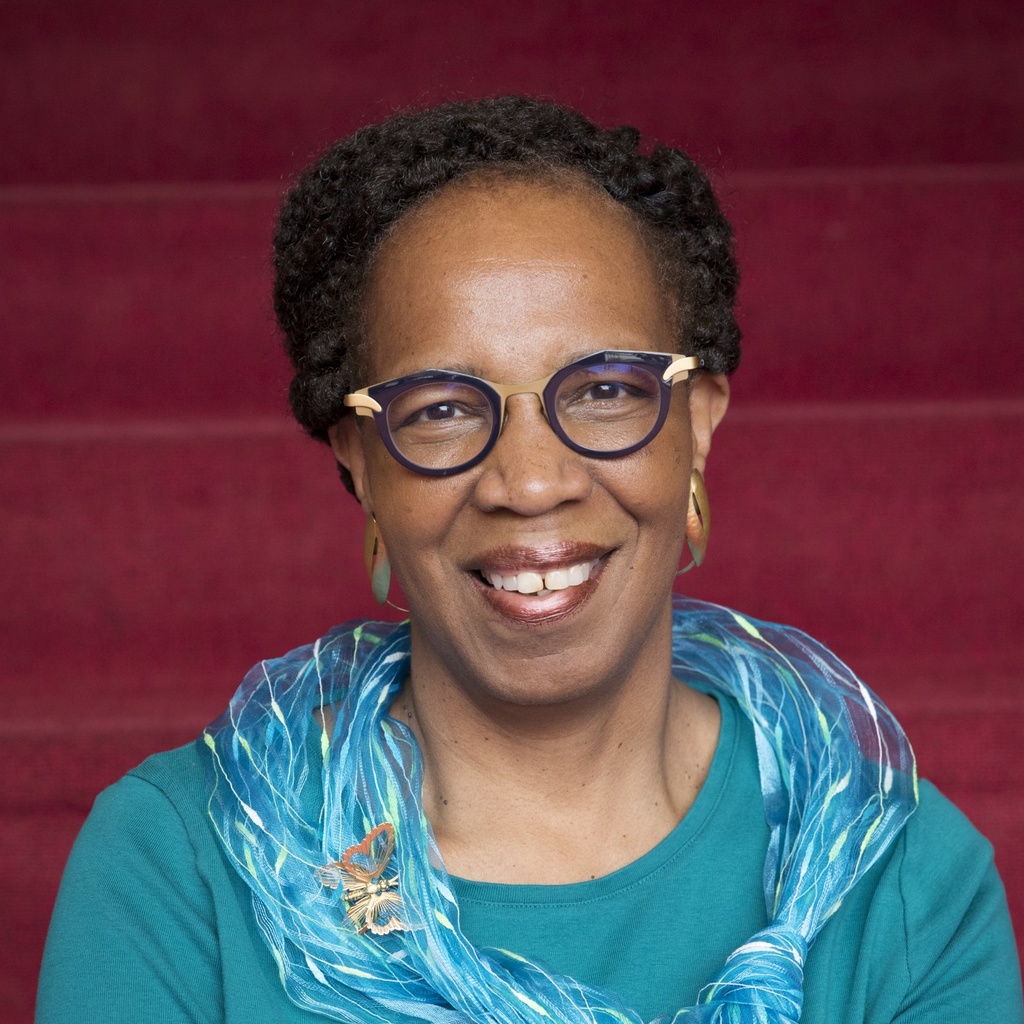
Dedicated space and time
“My time as an Obermann Fellow-in-Residence was invaluable. To have a dedicated space and time to pursue any lines of inquiry that I wanted to follow allowed me to accomplish a great deal and to plan for future professional and academic work in a focused way that is not possible during a regular semester. I also really appreciate the range of scholarly interests and backgrounds of fellow scholars that allowed for great wide-ranging formal and informal conversations.”
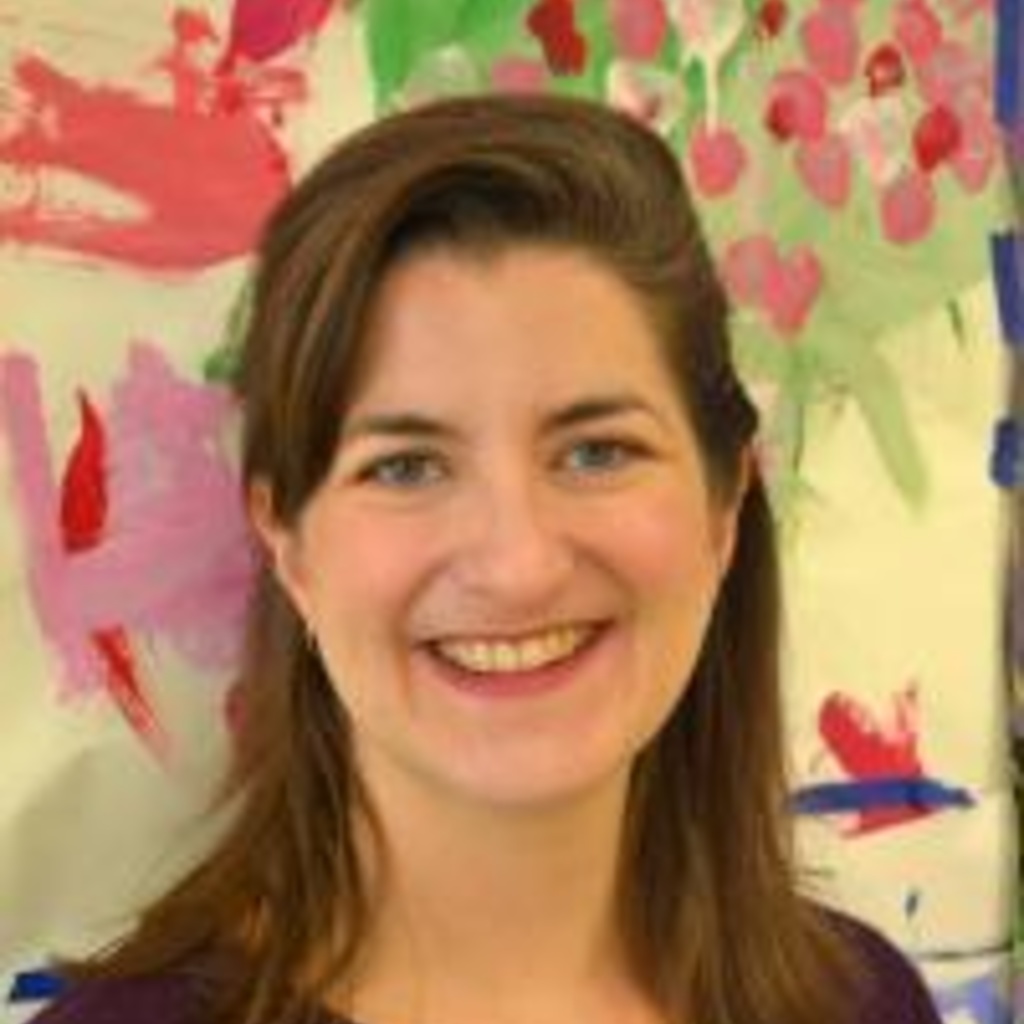
Rich conversations
"Thanks to the Obermann Center for making the Book Ends program possible. My workshop was tremendous. What an opportunity to have long-admired senior scholars and brilliant Iowa colleagues come together to discuss my work! The conversation was deeply rich, and I have a wealth of ideas about next steps. It was clear that everyone involved had participated in a similar workshop and knew well the genre. The comments were well pitched for next steps. I was so grateful for the facilitation of Naomi and Meena who deftly nudged and shaped the conversation, synthesized ideas, crystallized points, and wove together interactions. They were inspiring to watch in action."
Levels of support
Truly, every gift makes a difference. To provide a snapshot of what a gift can provide, consider:
- $50 contributes to Obermann's co-sponsorship of a campus or community event whose mission aligns with our own.
- $100 covers an honorarium to a community speaker for our popular Obermann Conversations series.
- $250 covers one day of expenses (lodging and food) for a visiting scholar hosted by one of our Working Groups.
- $500 covers an honorarium to a outside reviewer for our Book Ends Book Completion Workshop.
- $1,000 provides research support for one Obermann Faculty Fellow.
To learn more about how your gift can support and enrich our already diverse Center, contact Director Luis Martín-Estudillo at luis-martin-estudillo@uiowa.edu. Or to give directly, visit our UI Center for Advancement page.
Moving Forward
We operate with only four staff members, only two of whom are full-time. Funding for new programs and/or staff could help us to further support faculty and students. We would be delighted to offer any of the following programs:
- Collaborative teaching institutes, especially at the graduate level
- Fully funded fellowships for a group of faculty and graduate students to work together on a shared topic for a year
- A visiting public scholar award, to bring in experts from nonprofits, government, and business to work with our faculty and staff on kinds of public partnerships researchers could develop
- Funding to continue our very successful graduate internship program, currently supported by a Mellon grant. We would like to offer summer internships (including funding, as we do now, for the public partners) and yearlong internships, alternatives to teaching assistantships in a range of workplaces
- Grants for faculty and students to develop publicly engaged research projects with community partners that meet community needs. These would be co-designed and co-applied for with the public partners
- Funding to offer short courses for undergraduate and graduate students, linked to our programs or based on skill development
- Funding to apply for a yearlong faculty communications development project called the Op Ed Project, to help faculty, especially women and underrepresented faculty, write about their research in public venues
